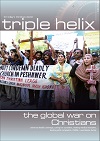India's baby factory industry
The BBC reports that commercial surrogacy is an industry worth $1bn a year in India. It spotlighted the activities of a controversial Indian medic, Dr Nayna Patel, who has built a multi-million pound complex in rural Gujarat. Rich couples from the West stay in plush accommodation having paid Patel £17,000 for arranging Indian women to be impregnated using couriered-in sperm and embryos. The women who stay in dormitories sign away legal rights to the child they carry and receive £4,950. Patel has delivered nearly 600 babies during the last decade. (BBC News Online magazine, 30 September 2013)
The e-cigarette tightrope
E-cigarettes might cause less harm compared to traditional cigarettes, but regulation of safety and product consistency is still essential, says the Lancet. It urges that marketing should be monitored, not least to ensure it doesn't encourage people to start tobacco smoking. Regulators in the EU and UK walk a tightrope, since over-zealous regulation could prompt people to take up traditional cigarettes instead. In September the Advertising Standards Authority banned three e-cigarettes advertisements for failing to state they contained nicotine. Several tobacco companies have stakes in e-cigarette products. (Lancet, 14 September 2013. doi:10.1016/S0140-6736(13)61918-2)
NHSBT anger over hospital drama
In hospital dramas, should dramatic effect win over adequate research? The 5 August episode of the BBC's Holby City depicted a mother agonising over whether to allow the harvesting of her braindead daughter's heart has drawn fire, accused of scaring off organ donors and 'commodifying' donors. BBC spokespeople claimed the plot showed what happens if rules are ignored. NHSBT (NHS Blood and Transplant) countered that it ignored professional advice and violated three cornerstones of organ donation procedure – anonymity, trust and altruism. (BBC Health, 5 August 2013)
Latest rulings on assisted suicide
Care Not Killing Alliance (CNK) has welcomed a ruling by three judges dismissing cases brought by the widow of the late Tony Nicklinson, Paul Lamb and 'Martin', to allow assisted suicide. They ruled change in the law was a matter for Parliament – not the courts. Alistair Thompson of CNK commented: 'We have to guard against people saying that human life has a finite value – that if you are disabled, elderly or terminally ill that your life is somehow worth less than if you are able bodied.' Expect a further round of appeals. (BBC Health, 31 July 2013)
Taking life for granted
The BBC regularly fillets 'God talk' but reporting Joost van der Westhuizen, South African rugby legend (89 caps), was an inspiring exception. Confined to a wheelchair with motor neurone disease, he testified, 'I've learned there are too many things we take for granted in life and it's only when you lose them that you realise what it is all about. I know God is alive in my life … I can now talk openly about the mistakes I made because I know my faith won't give up and it won't diminish.' (BBC Sport, 20 August 2013)
Ticket to bed
Basic rights of some mental health patients in England are being 'violated' because of a shortage of beds in psychiatric units. A Health Select Committee enquiry has uncovered evidence that people are being sectioned unnecessarily because it is the only route to secure hospital treatment. There were 42,208 detentions in England in 2008-9. By 2011-12 the figure had risen to 44,894. According to one witness to the enquiry, 'Being detained is the ticket to getting a bed.' (Independent, 14 August 2013)
What ailed the Elephant Man?
DNA sampling may soon unlock the medical cause of the deformities that afflicted 'The Elephant Man' (Joseph Merrick, 1862-1890). Skin and hair samples were taken during an autopsy conducted by Frederick Treves, the surgeon at the London who befriended Merrick, but these were lost during the World War 2 blitz. Merrick's skeleton is kept at the London Hospital and has never been publicly displayed, although a museum there is dedicated to his life and memory. DNA sampling must overcome challenges, not least because the skeleton has been treated with bleach. (Medical Daily, 29 August 2013)
Dying at your place of preference
Woody Allen said, 'I'm not afraid of death; I just don't want to be there when it happens.' Palliative care has improved the proportion of cancer patients who die in their place of preference; but of course most people do not die of cancer. So not surprisingly, fewer non cancer patients choose where they die. Some 26 studies (twelve UK based) on patients' wishes found 64.6% of patients with a cancer diagnosis chose their ultimate place of death compared to 54.7% of non-cancer related deaths. Moreover, the disparity seems to be growing. (BMJ Supportive and Palliative Care, 2013 doi:10.1136/bmjspcare-2012-000292)
Divorce is bad for health
The impact of separation and divorce on men's health needs more investigation, The Daily Mail opines. It cited American research reported by Men's Health magazine claiming divorced men are more likely to have heart disease, high blood pressure and stroke than married men. 39% are more likely to commit suicide. They are more likely to take part in risky activities like over-indulgence in alcohol and substance abuse. This runs contra to popular images of men as tough, resilient, and less vulnerable to psychological trauma than women. (Daily Mail Online, 1 October 2013)
Growing old graciously
Sweden leads the world for the treatment of elderly people says the UN Global AgeWatch Index. Norway and Germany followed Sweden at the head of the list. Britain was rated 13th, one place behind Ireland. Afghanistan languishes at the bottom of a 91-country global league table. Researchers used 13 different indicators – including income and employment, health provision, education, and environment – in what is claimed as the first global study of this kind. The report says that by 2050 older people will outnumber children under 15 for the first time. (BBC Health, 1 October 2013)































